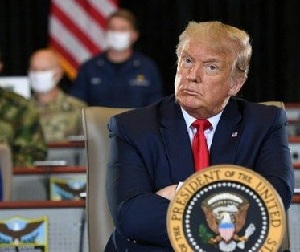 US President Donald Trump is probably the biggest misinformation factor about COVID-19 , according to a Cornell University study, funded in part by the Bill and Melinda Gates Foundation.
US President Donald Trump is probably the biggest misinformation factor about COVID-19 , according to a Cornell University study, funded in part by the Bill and Melinda Gates Foundation.
A team from the Cornell Alliance for Science analyzed some 38 million articles published in English, between January 1 and May 26, 2020, in the United States, United Kingdom, India, Ireland, Australia and New Zealand, as well as in some other countries in Africa and Asia.
Of these, more than 522,400 articles were identified with false information about the coronavirus , a phenomenon called an infodemic by the World Health Organization.
Likewise, the impact of these articles on social networks was calculated, with more than 36 million interactions, three-quarters on Facebook.
In total, eleven categories of false information were identified, from conspiracy theories – that the virus was created to create a new world order; that it is a biological weapon disseminated by a Chinese laboratory; that it is a disease linked to tycoon Bill Gates; that the virus was created to regulate the world’s population, among others – even miracle cures.
The latter were by far the most popular, with 295,351 articles, and Trump’s comments were responsible for a significant uptick in this category, particularly the possibility of a disinfectant injection to combat the disease, as he told a conference. release on April 24.
Similarly, there were similar peaks when he promoted the use of hydroxychloroquine, a treatment whose effectiveness has not been proven.
“Therefore, we concluded that the president of the United States was without a doubt the most important factor of misinformation” about COVID-19, the researchers noted.
“If people receive misleading information through unscientific and unsubstantiated reports about the disease, they may be less likely to follow official recommendations and spread the virus further,” said Sarah Evanega, who led the study.
“One of the most interesting aspects of the data collection was discovering the impressive amount of false information directly related to the statements of a small number of individuals,” said Jordan Adams, co-author of the research and data analyst at Cision Insight.